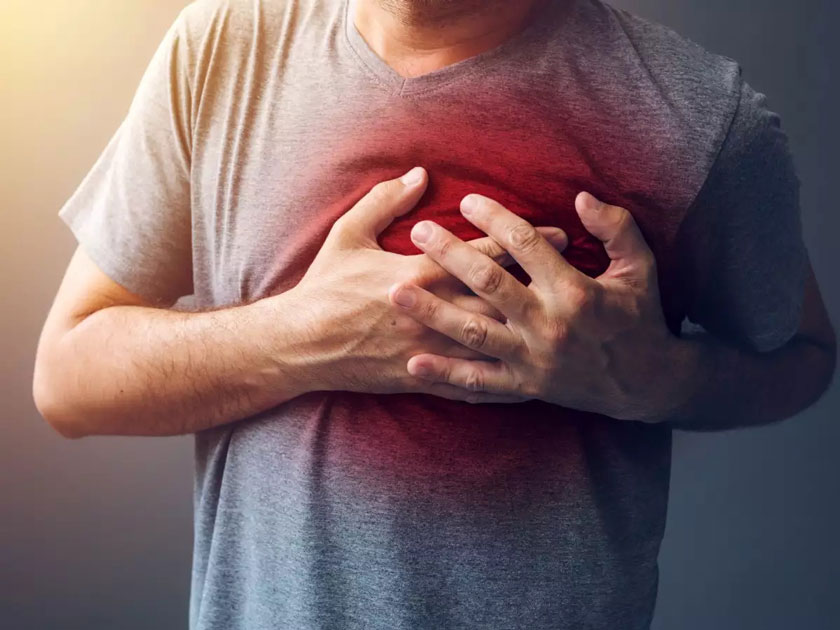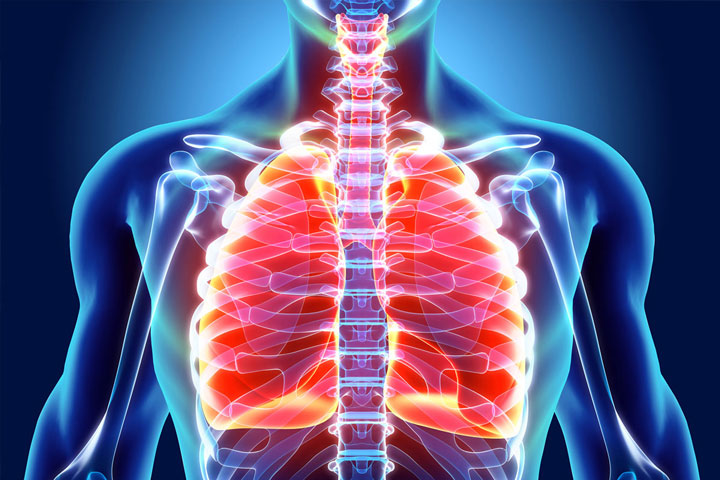RIB CAGE PAIN
Are you experiencing pain in your chest? This can be scary, you may even be worried you’re having a heart attack. Sometimes, the pain you’re experiencing in the chest might not be coming from one of your organs. The rib cage as well as the area surrounding them can also cause this pain and discomfort.
Rib cage pain is a common complaint resulting from various factors ranging from a fractured rib to lung cancer. People often complain of rib cage pain to be sudden and sharp or dull and aching.
Usually, cases of rib cage pain are not linked to serious conditions and resolve on their own or with minimal treatment.
People infected with coronavirus often complain of rib pain due to coughing fits. The covid-19 infection causes a huge amount of coughing that can lead to rib joint dysfunctions and persistent pain.

WHAT CAUSES RIB CAGE PAIN?
Your rib cage plays an important role to protect your heart, lungs, and other vital organs.
Rib cage pain can be caused by trauma, injury, or an underlying medical condition. Diagnosis is the key to the treatment of rib cage pain. Some of the common reasons for rib cage pain include:
Injury or trauma: This is the most common cause of rib cage pain. Injury to the chest from falls, traffic collisions, and sports-related contact leads to rib cage pain. Injury or trauma would include:
- Broken ribs
- Bruised ribs
- Fractured ribs
- Pulled muscle
Injured or broken ribs cause pain when breathing, coughing, twisting, or bending.
This rib cage pain can be diagnosed with an X-ray to highlight bone breaks and fractures. Imaging tests such as MRIs and other scans can detect soft tissue damage.
Costochondritis: This is also known as Tietze’s syndrome. This is also a common condition that is characterized by inflammation of the cartilage in the rib cage. The inflammation occurs in the cartilage joining the upper ribs to the sternum known as costosternal joint.
The pain ranges from mild to severe, including tenderness when touching the affected area. In severe cases, the pain can radiate down the limbs interfering with your daily life. Other symptoms include:
- Pain when breathing deeply, coughing, or sneezing
- Discomfort in the ribs
- Pains and ache around your sternum
Most cases of costochondritis resolve without treatment, but others might require medical intervention.
Pleurisy: This is an inflammatory condition affecting the linings of the lungs and chest. The inflammation in the pleura, which is a thin tissue lining the wall of the chest and the lungs. Inflammation causes them to rub, leading to significant pain.
Pleura is the lining inside of your chest cavity and the outside of your lungs and the area between these layers is known as pleural space. These layers glide smoothly against each other as you inhale and exhale.
Due to viral infections such as pneumonia, these layers become inflamed. These layers would rub together roughly, causing pain every time you breathe or cough. You might also feel shortness of breath as the fluid gets accumulated in the pleural space.
The doctor would recommend imaging tests such as X-rays or MRI along with blood tests to determine the underlying cause and to see the fluid built up.
 Cancer: Lung cancer is the second most common reason for rib cage pain in the United States. Chest pain and rib cage pain worsen upon breathing deeply, coughing, or laughing. Lung cancer is usually not taken seriously in comparison to other forms of cancer. This become the leading cause of cancer death among both men and women. If lung cancer is diagnosed at an early stage you would have a better chance of being cured.
Cancer: Lung cancer is the second most common reason for rib cage pain in the United States. Chest pain and rib cage pain worsen upon breathing deeply, coughing, or laughing. Lung cancer is usually not taken seriously in comparison to other forms of cancer. This become the leading cause of cancer death among both men and women. If lung cancer is diagnosed at an early stage you would have a better chance of being cured.
Metastatic lung cancer begins in one area and spreads to the lungs that makes it a life-threatening condition. This also causes pain in the rib cage or chest.
Slipping Rib Syndrome: This is caused when the cartilage of the lower rib slips and moves leading to pain in their chest or upper abdomen. This usually affects the lower rib or the floating rib. The overly mobile floating ribs slip under the ribs above. This movement would pinch the intercostal nerves that supply the muscles running between the ribs.
The symptoms would include:
- Intermittent sharp stabbing pain in the upper abdomen or back
- A dull and achy sensation in the upper abdomen or back.
- Slipping, popping, or clicking sensations in the lower ribs.
- Difficulty breathing.
- The symptoms would worsen while bending, lifting, coughing, sneezing, deep breathing, stretching, or turning in bed.
Infections: Some infections caused by bacteria or viruses can affect the rib cage or rib joints. Shingles are one such condition in which the chickenpox virus that remains in the body after the initial infection, reactivates. Acute bronchitis also causes inflammation in the airways affecting the ribs and causing pain. Pneumonia is also a bacterial or viral infection causing pain in the ribs cage.
Pulmonary Embolism: It is caused when the artery entering into the lungs becomes blocked due to a blood clot.
Along with rib cage pain, other symptoms associated are:
- Shortness of breath
- Rapid breathing
- Coughing, including coughing up blood
- Anxiety
- Lightheadedness
- Sweating
- Irregular heartbeat
Sometimes the pain felt in the rib cage is due to a structural problem or underlying medical condition such as heart problems, enlargement of the aorta, certain lung conditions, and many more.

RIB CAGE PAIN DURING PREGNANCY
During pregnancy, your body undergoes various changes. It’s hard to distinguish which aches and pains are normal and which aren’t.
Rib cage pain, especially upper rib cage pain in pregnancy is common throughout all three trimesters mainly during the later stages of pregnancy.
The main reason for rib cage pain during pregnancy are:
- Stretching of Your muscles.
- The baby is kicking or moving near, your ribs.
It is good to see a doctor if you are experiencing any of the following symptoms as soon as you can:
- Dizziness
- Nausea
- Bleeding
- Seeing spots
Rarely rib cage pain during pregnancy can be a sign of something more serious, but you should not ignore it and discuss your symptoms with your doctor.
OUTLOOK
Rib cage pain is usually resolved with in-home treatments. If rib cage pain is triggered from broken, fractured, or bruised ribs they require immediate medical attention. If your rib cage pain is resulting from an underlying medical condition, your doctor will advise the treatment options specific to your diagnosis. Immediately seek medical attention if chest pain or pressure is severe and breathing becomes difficult, as these symptoms may indicate a heart attack.
If you or anyone you know is suffering from chest pain, our expert providers at Specialty Care Clinics will take care of your health and help you recover.
Call us on (469) 545-9983 to book an appointment with our specialists.
